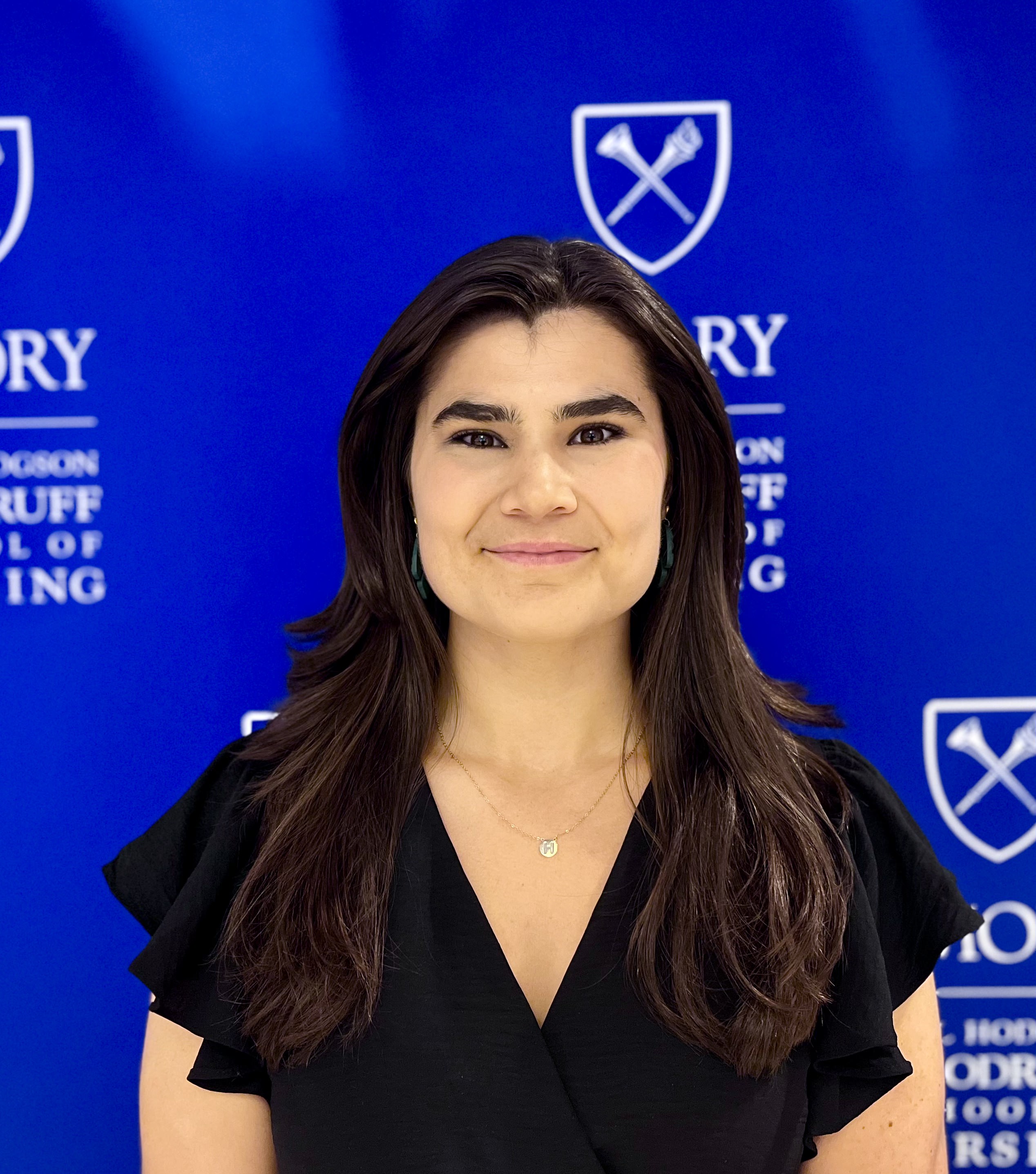
Heather Allstrom
About
Dr. Heather Allstrom is a Senior Clinical Instructor at the Nell Hodgson Woodruff School of Nursing at Emory University. She holds a Doctor of Nursing Practice (DNP) and is a Board-Certified Women's Health Nurse Practitioner (WHNP-BC). Her research focuses on the intersection of climate change, pharmacology, and women’s health, with an emphasis on equipping advanced practice providers to evaluate and address environmental health risks in clinical practice.
Dr. Allstrom teaches in the prelicensure nursing program, where she prioritizes student engagement through active learning strategies and fosters an inclusive learning environment. She has taught courses in pharmacology and public health, integrating climate-informed care and equity-centered approaches into the curriculum. In addition to her teaching responsibilities, Dr. Allstrom is committed to expanding service-learning opportunities and engaging in interprofessional education that prepares students for leadership roles in diverse healthcare settings.
Her ongoing scholarly work contributes to the growing body of knowledge on climate change’s impact on health, particularly reproductive health, and the role of healthcare providers in mitigating environmental health risks.

Areas of Expertise

Publications
- Mueller, K., Allstrom, H., Smith, D.J., Downes, E. & Modly, L.A. (2024) Climate change implications on practice: Pharmacologic considerations of heat related illness. The Nurse Practitioner, 10.1097/01.NPR.0000000000000230. Advance online publication.
- Mueller, K, Allstrom, H., Modly L.A., & Smith, D.J. (2025). Bridging Climate Change and Pharmacology: Evaluating Educational Impacts on Student Knowledge. Intersections: The Education Journal of the Woodruff Health Sciences Center.
- Kaligotla, L., Allstrom, H., Bercovitch, L., & Castaneda, G. (2024). A community partnership to train nursing students as advocates for health and social justice among marginalized communities. In J. B. Hamilton & C. E. Moore (Eds.), Transforming social determinants to promote global health: Achieving health equity through lived experiences (pp. 55-63). Springer Nature Switzerland AG. https://doi.org/10.1007/978-3-031-61160-5 Allstrom, H. Mueller, K., Sheridan, T. (2024). Exploring the intersection of climate change, pharmaceuticals, and prescribers in women's health. Emory Nursing Experience. https://ce.emorynursingexperience.com/courses/exploring-the-intersection-of-climate-change-pharmaceuticals-and-prescribers-in-womens-health

Teaching
My teaching philosophy is centered on active learning and student engagement, creating a dynamic environment where students actively participate in their education. I design lectures and materials that are student-centered and applicable to real-world contexts, ensuring the content is both engaging and meaningful.
I integrate the student voice by embedding questions in slides to gauge understanding and encourage discussion. I also use call-back methods to reinforce concepts and provide instant feedback. To meet diverse learning styles, I offer supplemental resources—audio, visual, and written materials—recognizing that students learn differently. I aim to meet students where they are, providing various tools for them to find their best learning approach.
Student feedback is vital to my practice. I actively seek feedback throughout the course and make adjustments, such as refining slide design and pacing based on mid-semester input. This continuous improvement ensures I remain responsive to student needs.

Research
My research focuses on the intersections of climate change, pharmacology, and women’s health, with a particular emphasis on how environmental factors impact healthcare delivery and patient outcomes. I am particularly interested in how advanced practice providers can be equipped with the knowledge and tools to assess climate-related health risks and adapt clinical decision-making accordingly.
Currently, I am exploring how climate change influences prescribing practices and patient care in the context of reproductive health, addressing both physical and social determinants of health. My work integrates education, public health, and pharmacology, with a focus on developing and evaluating educational interventions that prepare healthcare providers to respond to the growing climate crisis. I also aim to expand research on climate-informed care and the training of healthcare providers to deliver evidence-based, equitable, and sustainable care in the face of environmental challenges.






